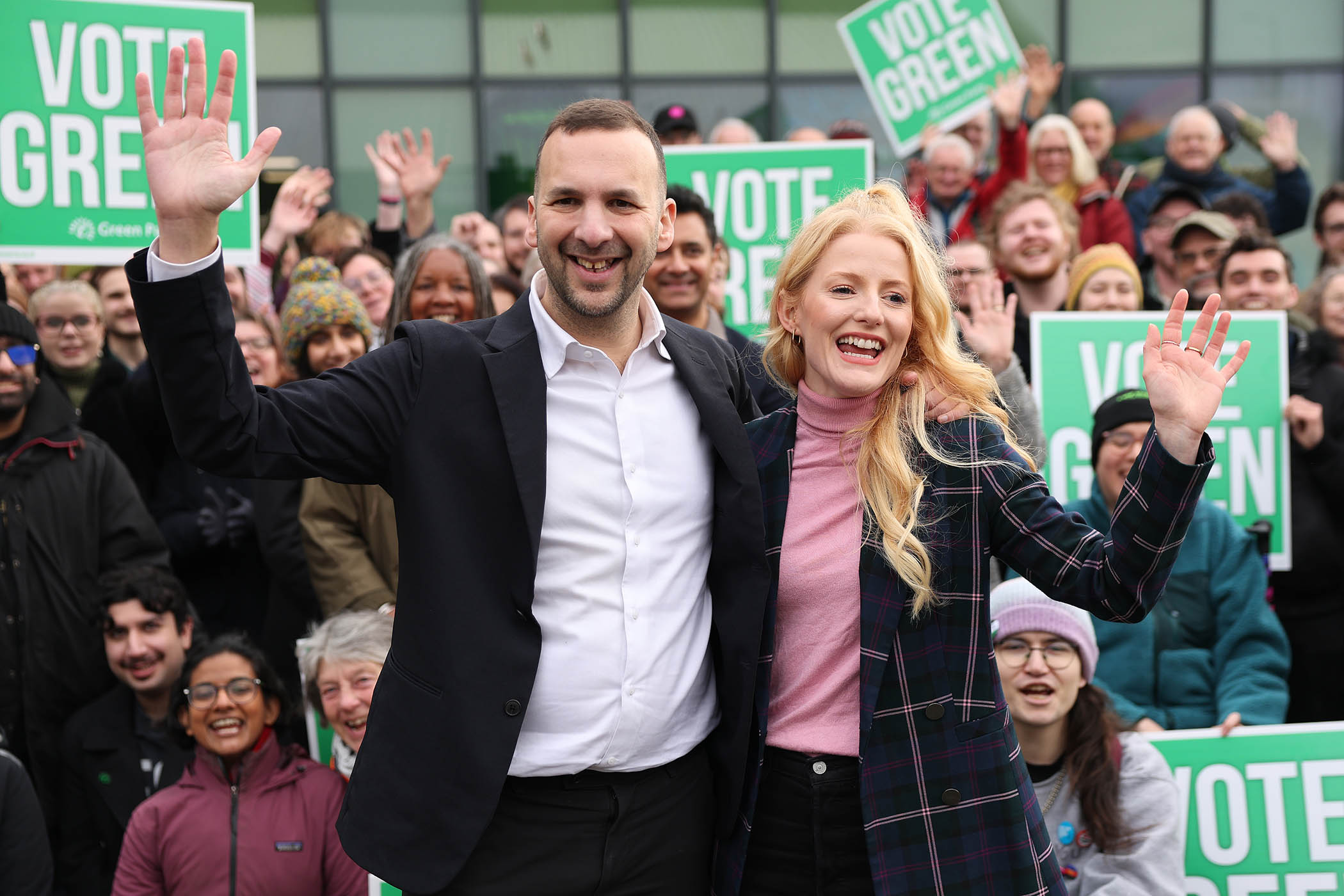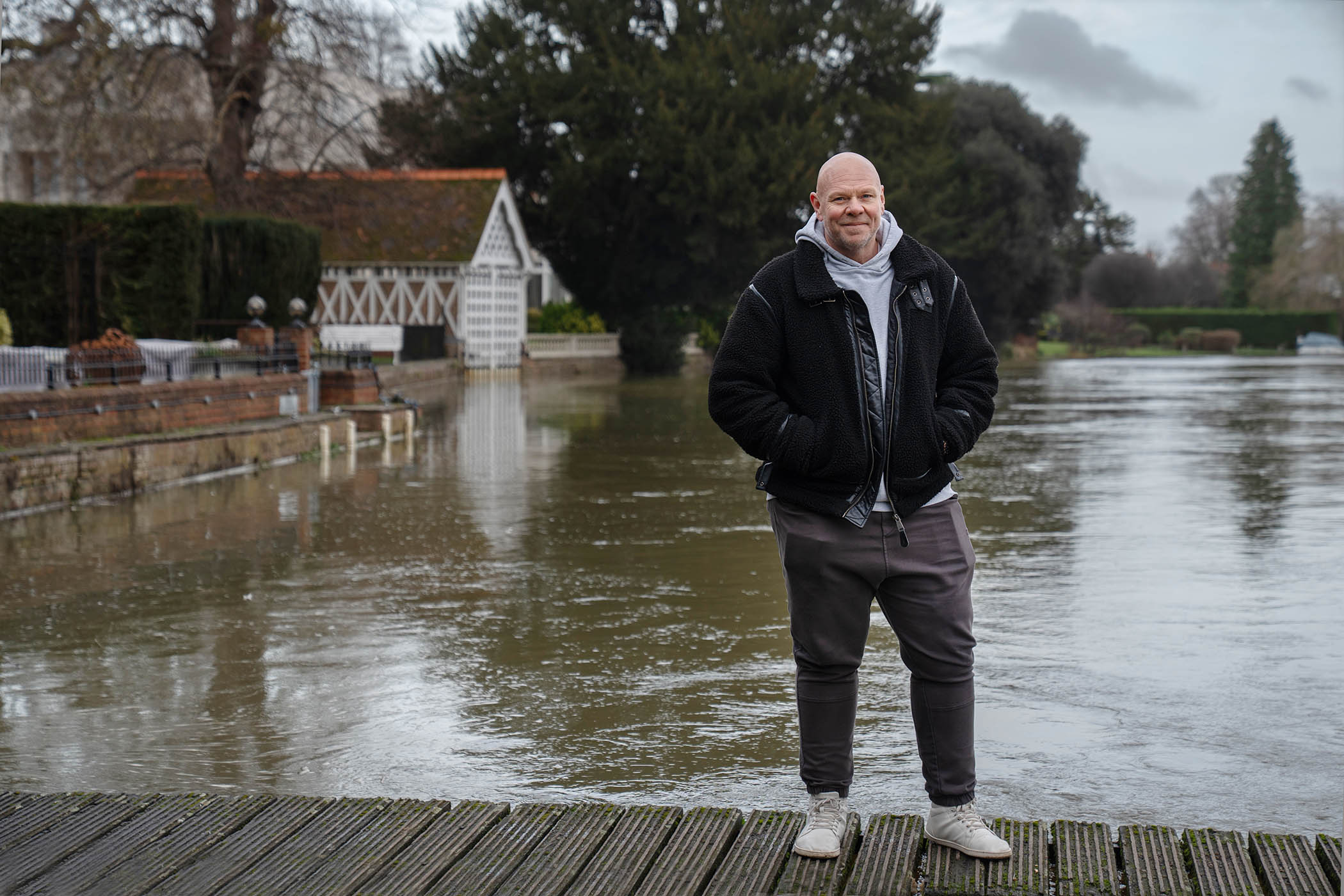Ed Miliband has called for an end to “hair shirt” environmentalism, urging instead a focus on the economic benefits of a “green industrial revolution” that, he said, could create almost 400,000 jobs.
In an interview with The Observer, the energy secretary said the government’s commitment to tackling the climate crisis would drive growth and create employment in the former mining communities and industrial heartlands that have turned to Reform UK. “This is the economic opportunity of the 21st century and we intend to seize that,” he said. “This is how we’re going to win the argument for net zero.”
Miliband said he was pleased to see the back of Just Stop Oil, the environmental pressure group whose members glued themselves to trains, blocked motorways and threw paint at works of art. “It just alienated people. Peaceful protest has got an important role. I think the young people a few years ago did prick people's consciences, but I'm glad [Just Stop Oil] closed down. I think they turned people off.”
He believes that campaigners who want to reduce the UK’s reliance on fossil fuels need to promote a more positive message if they want to retain public support. “I’ve always believed it doesn’t succeed as a hair shirt agenda. This is about good jobs for you, your kids, your grandkids. It is about lower energy bills. It’s about cleaner air. Some people in the [green] movement think the test is: how much can we get people to make sacrifices? That’s not my test. My test is: how can we create better lives for people today and in the future?”
‘I can’t remember anyone who’s said to me: “Please reopen the coalmines”, because it was a hard, dangerous job’
‘I can’t remember anyone who’s said to me: “Please reopen the coalmines”, because it was a hard, dangerous job’
Ed Miliband
Miliband, who was Labour leader in opposition between 2010 and 2015, said the climate crisis was “the biggest long-term threat” to humanity. “There are lots of people who feel really idealistic about it, and I’m one of them, but if it’s only an agenda about disaster avoidance, it’s not going to succeed. Martin Luther King didn’t say: ‘I have a nightmare.’ He said: ‘I have a dream.’”
The government will this week publish a 10-year industrial strategy setting out plans to support sectors that are seen as critical for the UK’s long-term economic growth, including green technologies. At least £1bn will be invested in companies that support the “clean energy” economy to boost British manufacturing.
It is a move, he said, in which the government is saying that “we care about where things are made”. With China so dominant in green technologies, including wind turbines, electric vehiclesand solar panels, he insisted there was also a national security need for the UK to become more self-reliant. “We want to build supply chains in Britain and diversify.”
Miliband said offshore wind was expected to create 100,000 jobs by 2030, while onshore wind could support up to 45,000 roles. The nuclear industry would probably need about 120,000 employees and carbon-capture and storage technology would generate another 50,000 jobs. About 70,000 heat pump installers will be needed by 2035, according to industry estimates.
Related articles:
“When you look at the map of where those jobs are, they’re very often in industrial areas of the country and areas that haven’t had the benefits of prosperity,” he said.
Great British Energy, the publicly owned company set up to invest in renewables, will have a “deliberate focus on those areas of the country where they can make a real difference”, he added.
Newsletters
Choose the newsletters you want to receive
View more
For information about how The Observer protects your data, read our Privacy Policy
Miliband’s comments follow the collapse of the political consensus over the legally binding commitment to reach net zero greenhouse gas emissions by 2050. Reform’s leader, Nigel Farage, has promised to scrap the UK’s net zero target, describing it as “lunacy”.
Kemi Badenoch, the Conservative leader, has also dropped her party’s support for the pledge and said the climate target is “impossible” to reach. Last month, the US president, Donald Trump, told the UK’s prime minister, Keir Starmer, to stop building “unsightly windmills” and drill for more oil in the North Sea.
Miliband said it was wrong to see net zero as the “new Brexit” in terms of political dividing lines. “I think they want it to be, but it's not going to be. If you think back to Brexit, the remain campaign was the status quo and they [the leave camp] were representing themselves as change.” Now, he argued, the tables had been turned. “We are about positive change here. We are the people saying we are going to deliver these good jobs that you want, which was the underlying force – at least in my constituency – for Brexit.”
People in Doncaster, where he holds the Doncaster North seat, voted overwhelmingly to leave the EU in the 2016 referendum. But he thinks Reform fundamentally misunderstands them. “My constituents would say: ‘We’re voting for Brexit because we want a better life for our kids and grandkids,’” Miliband said.
“Nigel Farage said we should reopen the coalmines. I’ve been MP for Doncaster for more than 20 years and I literally cannot remember anybody who’s ever said to me: ‘Please reopen the coalmines’, because it was a hard, dangerous job… Richard Tice [Reform’s deputy leader] has said he’s going to wage war on the investors and developers. He’s waging war on these new clean energy jobs that could bring benefits all around the country.”
Critics argue that the government’s green policies are pushing up energy bills at a time when many voters are already struggling with the cost of living. But Miliband insisted the reliance on fossil fuels has added a “massive surcharge” to bills and his plans will bring them down.
“We’ve seen gas prices go up something like 12% in the last two weeks, since the start of this [Middle East] crisis. The danger is that feeds through to energy bills. That’s because we’re so dependent on fossil fuels.”
He confirmed that the government plans to give more help to British manufacturers with their energy bills to bring their costs in line with international competitors.
Miliband is one of the few cabinet ministers who has been in government before, serving as energy and climate change secretary under Gordon Brown’s prime ministership. “David Cameron said to me a few months ago: ‘The thing about going back into government is, you know how to do things. You just need to decide what you want to do.’ I thought that was a very good way of putting it.
“It’s good to go back to a job you did 16 years ago because you can do it better. Experience is a useful thing to have. There’s also a sense of urgency. Five years is a very short time and a year has already gone by. We have to move fast and build things.”
Photograph by Suki Dhanda/The Observer



